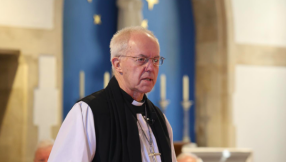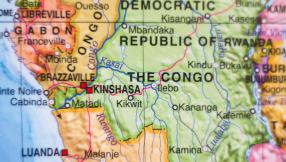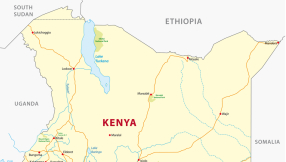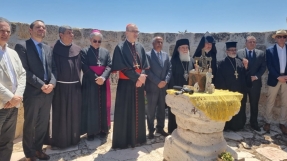Iraqi Political Leaders Hold Talks to End Crisis
Maliki's national unity government has been plunged into its worst infighting since it was formed in May 2006 because of pullouts by the main Sunni bloc and ministers loyal to Shi'ite cleric Moqtada al-Sadr. Others are boycotting cabinet meetings.
The summit, due to begin this week, will bring together Iraq's top five politicians -- Maliki, President Jalal Talabani, a Kurd, Sunni Vice President Tareq al-Hashemi, Shi'ite Vice President Adel Abdul-Mahdi, and Masoud Barzani, president of the semi-autonomous Kurdistan region.
Iraqi officials said all issues linked to the political process, including a review of power-sharing procedures between the Shi'ite majority, Sunnis and Kurds, would be discussed but there would be no question of replacing Maliki.
"(The five leaders) can touch the forbidden in our politics. They can discuss it. They have the ultimate power," said a Shi'ite official familiar with the talks.
"Everything will be on the table. It is like the days when we were forming the government, except that Maliki himself is not going to be replaced," said the official, declining to be named.
Insurgents in Iraq draw support from the Sunni community, once dominant under Saddam Hussein.
MAKE-OR-BREAK
U.S. officials have described the summit as a make-or-break moment for the government. They have expressed growing frustration at the failure of Maliki's government to agree on laws designed to end sectarian violence in Iraq.
U.S. President George W. Bush has sent 30,000 additional troops to Iraq this year and backed an offensive in and around Baghdad, partly to give Maliki's government time to make political progress.
The U.S. military commander in Iraq, General David Petraeus, and U.S. Ambassador Ryan Crocker are due to present a report to the U.S. Congress in September on the success of the troop build-up and Iraqi political progress towards reconciliation.
Another major issue to be discussed at the summit is a much-delayed draft oil law that could ease sectarian tensions by ensuring Sunnis share in oil profits with Shi'ites and Kurds.
Iraq has the world's third-largest oil reserves but most of the oil is in the Kurdish north and Shi'ite south.
Other legislation seen as crucial by Washington to ending sectarian bloodshed involves easing restrictions on former members of Saddam's Baath party serving in the civil service and setting a date for provincial elections.













